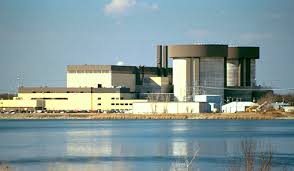Consumers in states that focus on carbon-free generation and energy efficiency to comply with the Clean Power Plan could see significant cost savings, according to a study by Synapse Energy Economics. The consultant estimated that residential consumers could see bills averaging $35 a month lower by 2030, according to the study.
The study shows savings greater than the Environmental Protection Agency estimates and counters those that predict the carbon-emissions mandates will increase energy costs. The U.S. Chamber of Commerce, for instance, said some states could see energy costs increase about $200 a year per family after the Clean Power Plan is adopted.
The report also predicted that compliance with the rule would reduce carbon emissions by 58% by 2030, nearly twice the reductions mandated.
More: The Hill
Jeb Bush Calls for End to Fed, State Energy Subsidies

“I don’t think we should pick winners and losers,” said the Republican presidential candidate. “I think tax reform ought to be to lower the rates as far as you can and eliminate as many of these subsidies — all of the things that impede the ability for a more dynamic way to get where we need to get.”
Ben Schreiber, of Friends of the Earth Action, agrees that it is time to cut oil and gas subsidies, but he thinks tax breaks for renewable energy should stay in place. “We cannot suddenly decide that renewables can compete fairly after decades of taxpayer support privileging polluters,” he said.
More: The New York Times
Mass. Senate President Asks FERC for More Public Review on Pipeline

Massachusetts Senate President Stan Rosenberg, a Democrat from Amherst, thinks the public needs more time to review the Tennessee Gas Pipeline’s $3.3 billion natural gas pipeline proposal and he has asked the Federal Energy Regulatory Commission to postpone a scoping hearing.
Rosenberg joined other pipeline opponents in trying to postpone the meetings. The meetings are a step in an approval process that would allow the Kinder Morgan subsidiary to build the pipeline across northwestern Massachusetts, New Hampshire and terminating in Dracut, Mass. If the pipeline is approved, it would be allowed to obtain rights of way by eminent domain, bypass some building regulations and cross environmentally protected areas.
Several opposition groups have already tried, and failed, to get FERC to delay the process.
More: MassLive
FERC: 128 MW of Biomass Generation Added this Year
The Federal Energy Regulatory Commission’s Office of Energy Projects reported that biomass-fueled projects generating 128 MW have been added to the U.S. portfolio in the first six months of 2015.
Seven projects, including a 95 MW waste-to-energy project in Palm Beach, Florida, were added to the country’s generation fleet. That compares to a total of 137 MW of biomass projects in all of 2014. Biomass projects typically use wood as a fuel.
More: BioMass Magazine
NRC Closes Inspector’s Office at Vermont Yankee Plant
The Nuclear Regulatory Commission has closed its resident inspector’s office at Entergy’s Vermont Yankee nuclear generating station, which retired in December and is undergoing decommissioning. The NRC has had a resident inspector at the site since the Resident Inspector program was launched.
The regulatory agency will continue to conduct periodic inspections at the plant, however. And when a major decommissioning work is undertaken, such as spent-fuel removal, an on-site inspector will be on hand.
More: Brattleboro Reformer
Exelon’s Byron, Braidwood Stations Pass License Renewal Steps

The Nuclear Regulatory Commission says there are no environmental reasons to deny operating license renewals to Exelon Nuclear’s Byron Generating Station. A week ago, the NRC said there were no technical reasons to deny a similar extension for the company’s Braidwood Generating Station.
Exelon is seeking 20-year license extensions for both plants. If approved, Byron Unit 1 would receive a license good through Oct. 31, 2044, and Unit 2 would be good until Nov. 6, 2046.
More: Nuclear Street
Judge Orders US Government to Pay $20.6M to Entergy on Waste Issue
A federal claims judge in New York denied a U.S. government motion to appeal an order requiring it to pay $20.6 million to Entergy Nuclear Palisades for failing to meet its responsibility to dispose of the plant’s radioactive waste.
Judge Nancy Firestone of the U.S. Court of Federal Claims granted Entergy’s request for partial judgement of $20.6 million of a total damage claim of $36.4 million. She ruled the government had a duty to pick up and dispose of the plant’s spent fuel under a 1983 contract and never fulfilled it. Government attorneys didn’t dispute the breach of contract, but they argued that the amount should be determined during the upcoming trial in December.
“Because the government has already agreed that it owes plaintiff approximately $20.6 million in damages, the outcome of the remaining portion of the litigation will not have any effect on the government’s obligation to pay that amount,” Firestone wrote. The government has been unable to live up to any agreements to dispose of spent nuclear fuel because it has been unable to build a spent-fuel repository.
More: Law360 (subscription required)
BOEM Offering 22 Million Offshore Acres to Energy Exploration

The area is divided into 4,038 blocks, from nine to 250 nautical miles offshore, according to Abigail Ross Hopper, bureau director. She said the water depths of the areas range from 16 feet to more than 10,975 feet.
It will be the eighth sale in BOEM’s current five-year program. The first seven auctions generated nearly $2.9 billion in revenue for the federal government.
More: WorldOil.com


